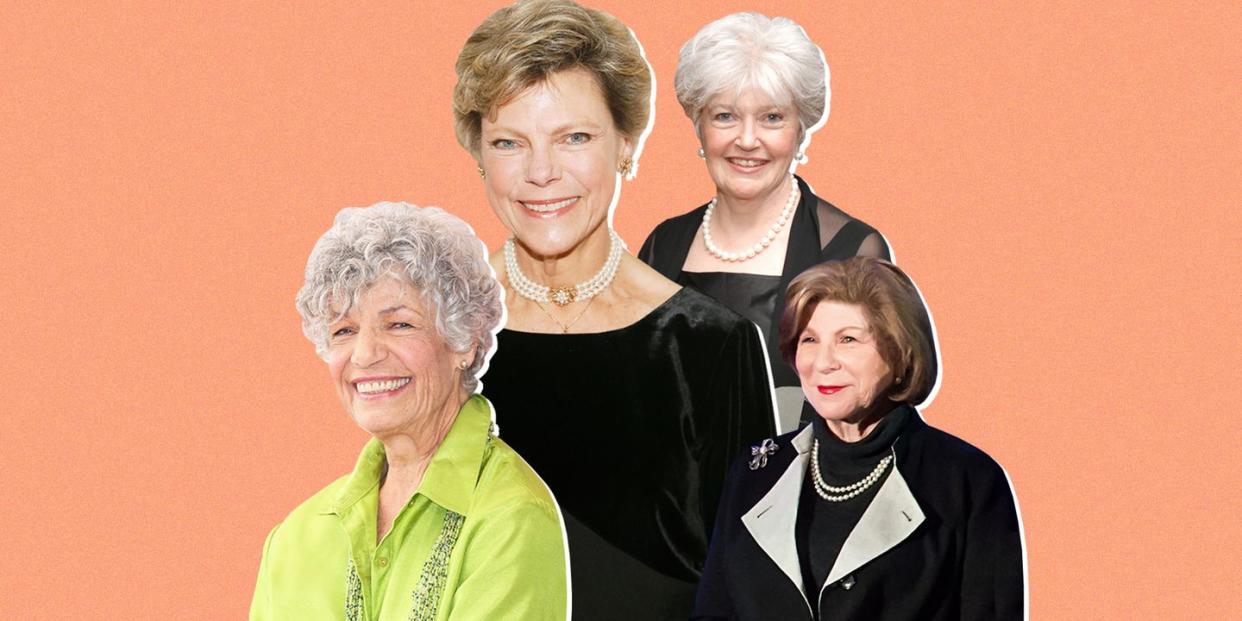"Susan, Linda, Nina & Cokie" Celebrates the "Founding Mothers" of NPR

Recently All Things Considered's Susan Stamberg, the first woman in America to anchor a daily national news program, tweeted, "Today is my 50th Anniversary at NPR. Hard to believe. Only our grandfathers spent that much time at the same workplace. Now a Founding Mother has!"
Lisa Napoli has written an engaging and essential ode to those "founding mothers" of National Public Radio—the four journalists who were there from the network's earliest startup days and were crucial to its establishment as one of the world's most influential news outlets. Susan, Linda, Nina & Cokie: The Extraordinary Founding Mothers of NPR (April, Abrams Press) is both an ensemble biography of the now-iconic broadcast journalists Stamberg, Linda Wertheimer, Nina Totenberg, and Cokie Roberts, and a fascinating chronicle of how, as Roberts once said: "History looks very different when seen through the eyes of women."
Today is my 50th anniversary at NPR. Hard to believe. Only our grandfathers spent that much time at the same workplace. Now a Founding Mother has!
— Susan Stamberg (@stamberg) April 5, 2021
Back before National Public Radio became the source from which nearly 60 million people get their daily news, Stamberg took a job editing tape in 1971 for a fledgling program there called All Things Considered. She then went on to anchor the show until 1986, becoming the first woman in America to anchor a daily network news program.
Also in 1971, Wertheimer signed on and became the show's director and later an anchor, after occupying several entry level positions with various news outlets—among them the BBC—where the message that women should limit their ambitions to roles as production secretaries and researchers was heard loud and clear. And that was the pervasive attitude about news gathering at the time. Napoli quotes one NBC executive from 1964 as saying: "Many women may be fine in everyday conversation, but put them in front of a microphone..and they become affected, overdramatic, high-pitched. Some turn sexy and sultry."
Totenberg joined NPR in 1975 and quickly became a legal affairs correspondent known for scooping her fellow reporters, even those from higher profile outlets, to the point where rumors circulated that she must be using sex in exchange for news tips. This was, Napoli reminds us, a time when the weekly political bible Roll Call had a feature called "Hill Pinup," focused on attractive congressional secretaries—lest anyone forget where women belonged.
Roberts, who died in 2019 at age 75, joined NPR in 1978. Her parents—Hale and Lindy Boggs—were Washington, D.C. royalty and her husband, Steve, had worked in Manhattan, California, and Greece for the New York Times. He was assigned a new post with the Times's Washington, D.C. bureau just as she had started working as a freelance foreign correspondent from Athens. Roberts was bereft, but when her husband heard about the new radio network where three women had begun to makes names for themselves, he walked his wife's resume to the NPR offices. With Roberts's hiring, the "founding mothers" team was complete.
The book charts the rise of these pioneers amid a growing awareness of feminism and women’s rights and the broader scope of civil rights in the 1960s, 1970s, and beyond. They endured countless acts of chauvinism and blatant sexism which they countered by forging close working friendships, having each others' backs, and becoming the best in the business. As a result, their trajectories permanently altered the media power structure.
On the other hand, their being "trailblazers" was almost incidental, Napoli suggests. Bill Siemering, who conceived of and named All Things Considered had simply been looking for qualified candidates willing to take a risk on a brand new venture and would work for the modest salaries he was able to offer. Siemering envisioned public radio as a change agent, and felt diversity was key. Napoli writes that unlike most of the other men running media outlets, Siemering's thinking went like this: "Why was it that the male voice dominated the airwaves...How come one half of the population was shunted aside, included only as tokens? Why shouldn't women be heard in equal measure?" He couldn't have found better exemplars for that mission. The teams' stars quickly rose, though they weren't immune from derision and pushback; at one point a male co-worker christened their corner of the office "The Fallopian Jungle."
Histories, biographies, and behind-the-scenes narratives about the news biz typically idolize swaggering, chain-smoking, tough-talking dudes who tower over testimonies with testosterone-infused personalities. But with Susan, Linda, Nina & Cokie, Napoli honors not the dog-eat-dog variety of journalist, but the fortitude of sisterhood, of women supporting each other. Napoli writes: "They were unabashed in their delight in having found one another, and this work. No longer did they need to gaze at or be at the hand of the old boy network. They were firm and proud leaders of the hard-won old girl network they’d hatched."
You Might Also Like

